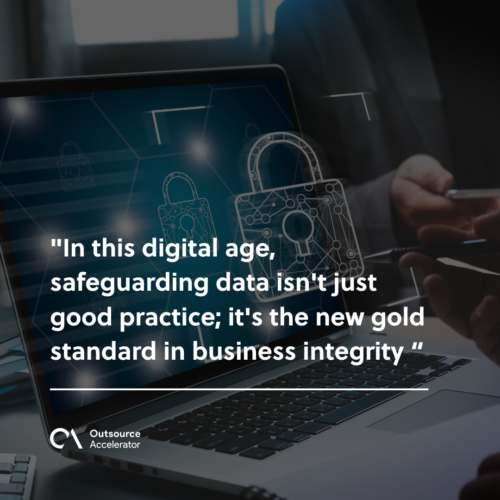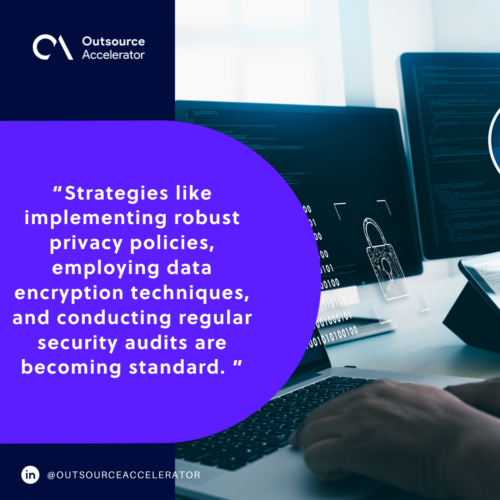Your data today is more valuable than ever, the lifeblood of modern business, pulsing through the veins of the digital economy.
But with great value comes great vulnerability, and with it a responsibility to safeguard this treasure trove.
As we navigate this brave new world, where data is king and information is power, the need to protect and respect this digital currency becomes paramount.
So how do we ensure that our digital riches are not only utilized, but also fiercely guarded?
The importance of privacy
Recent headlines have been rife with data breaches. They should serve as a wake-up call to businesses and consumers alike.
From the Facebook-Cambridge Analytica scandal to the 23andMe breach impacting millions of customers, the sanctity of data privacy has never been more in the public eye.
In this digital age, safeguarding data isn’t just good practice; it’s the new gold standard in business integrity.

Decisions in the privacy era
Make no mistake – we are firmly within the privacy era.
This new wave of awareness isn’t just a trend; it’s a deep-seated evolution in how we forge our business alliances.
In this era, every handshake and signed contract comes with an implicit promise. Data is to be treated with the utmost respect and security
We’re no longer simply picking vendors; we’re choosing guardians for our customers, and our business.
Compliance challenges
New data privacy laws like the GDPR and CCPA are fundamentally changing how companies handle customer information.
These expansive regulations not only levy substantial fines for violations, but also require transparent data management practices.
And the result for companies that rely heavily on vendors and partners? An ever-evolving web of strict standards to navigate.
Best practices for prioritizing privacy
But privacy is no longer just a compliance requirement; it’s a core business value.
To navigate this landscape, adopting best practices for data privacy is imperative.
Strategies like implementing robust privacy policies, employing data encryption techniques, and conducting regular security audits are becoming standard.
Furthermore, businesses are increasingly leveraging advanced technologies like AI and blockchain to enhance data security in their outsourcing models.

What the future holds for outsourcing
As we look to the future, it’s clear that data privacy will continue to be a pivotal factor in shaping the outsourcing industry.
Businesses must stay ahead of the curve by not only complying with current regulations but also anticipating and preparing for future changes.
This ongoing vigilance and adaptation will be key to ensuring that the outsourcing of tomorrow is secure, compliant, and respectful of consumer privacy.
The question for your business
How does your data privacy strategy influence your business decisions?

 Independent
Independent





















